Question-my 2 month old GR puppy has the basement of my house to himself (we have removed everything that could have been a potential hazard). i have trained him to pee and poop outside, which he responds to well. the only problem is that he is left alone for an hour or two during the day and at these times, the door going outside is locked and there is no way for him to exit to go potty, so he just goes on the carpet. he is also in the basement during during the night. what should i do? i want to train him to go in a certain tiled area when i'm not home to keep the door open, but still would like him to go outside when i am there.....please give me advice! how do i train him to do this?
-is it normal for a puppy (just over 2 months) to start humping (very rarely though...only when he's really hyper)?
-i have looked at my puppy's pee, and there is a little bit of white things in his pee...but when his pee settles they fade away into the urine and when it dries up, the white things are gone..it kind of looks like little bit of foam, but i dont think it is...is this normal? (im a first-time puppy owner and im really concerned!)
-my puppy has gone for his 2nd set of shots when he was close to 2 months old....am i able to take him to the park to play with other dogs? or do i have to wait for his next set of shots?
thank you SOOOO much for reading and hopefully providing me some answers! God bless!
AnswerEven though housetraining is going well, I am going to paste in some material on it with details you need.
Much of housebreaking is not training the puppy, but making it easier for your
puppy, you, and your carpet while its body to catches up to its instincts. At
around 8 weeks when the puppy goes to its new home, the time from when it
realizes it has to go, and when it can't wait any longer is a matter of
seconds. Only time will fix that. You can hardly be expected to be attentive
enough to avoid all accidents. There is no sense punishing the puppy for your
inattention. It is not fair to punish you either, but you still have to clean
it up if you didn't have the puppy outside in time.
Housebreaking starts before you get home with the new puppy. If you don't have
a crate, buy one. I prefer the more enclosed, den like plastic ones. Skip the
bedding. At first it gets wet, and later it can be chewed into choking
hazards. A wire grid in the bottom will help keep the puppy up out of
accidents at first. They are available with the crates, but expensive and hard to find. A piece of closely spaced wire closet shelving from a home supply place is cheaper. I am now using a plastic vegetable bin with plenty of holes drilled in the bottom. It helps block off part of the crate for the smaller puppy. If you already have a metal crate, covering it may help. Just make sure you use something the puppy can't pull in and chew. Dogs that start out in crates as little puppies, accept them very well. Never leave an unattended puppy loose in the house. If nobody can watch it, put it in the crate. I suggest letting the dog have its crate all its life. A crate needs to be just big enough for a dog to stretch out in.
Choose a command and spot you want it to use. The less accessible to strays,
the less chance of serious disease. If it is a female, choosing a non grassy spot will avoid brown spots later. When you bring it home, take it to the spot and give it the command in a firm, but friendly voice. Keep repeating the command and let the puppy sniff around. If it does anything, praise it. Really let it know what a good dog it is and how much you love it, and maybe a treat. Note, being out there not only means you can praise it, but it also keeps it from being snatched by a hawk. If it doesn't go, take it inside and give it a drink and any meals scheduled. A young puppy will need to go out immediately afterward. Go to the spot and follow the above routine. Praising it if it goes is extremely important. If it doesn't go, take it back inside and put it in its crate and try again soon. Do not let it loose in the house until it does go.
At first it is your responsibility to know and take the puppy out when it
needs to go. It needs to go out the first thing in the morning, after eating,
drinking, and sleeping. If it quits playing, and starts running around
sniffing, it is looking for a place to go. Take it out quickly. You will just
have to be what I call puppy broke until it is a little older. How successful you are depends on how attentive you are.
By the time most dogs are about 3 months old, they have figured out that if
they go to the door and stand, you will let them out. The praise slowly shifts
to going to the door. Some people hang a bell there for the dog to paw. If
your dog doesn't figure this out, try praising it and putting it out if it
even gets near the door. A stern "Bad dog!" is all the punishment that is
effective, and only when you catch it in the act and are sure you didn't miss
it going to the door. Clean up accidents promptly. I mostly keep the little
puppies out of the carpeted rooms. Still I need the can of carpet foam
sometimes. First blot up all the urine you can with a dry towel. Keep moving
it and stepping on it until a fresh area stays dry. A couple big putty knives
work well on bowel movements. Just slide one under it while holding it with
the other. This gets it up with a minimum of pushing it down into the carpet.
This works with even relatively soft ones, vomit, dirt from over turned house
plants, or anything else from solids to thick liquids. Finish up with a good
shot of carpet foam. Note, do not let the puppy lick up the carpet foam.
Once the dog is reliably housebroken, your carpet may need a good steam cleaning.
Many people strongly strongly push cleaning up all evidence of past accidents. I am slower to suggest that. Dogs will return to the same spot if they can find it. When you see one sniffing the spot, that is your clue to run it out.
The crate should work well at night and if you don't have to leave him more than 4-5 hours during the day. If so, you might see if a neighbor or professional dog walker could give him a break mid day.
You might ask the vet about the white in the urine next visit.
Just when it is safe to take a puppy to the park is hard to say. Rather than trying to explain it, I will give you a link to the AVMA, http://www.avma.org/communications/brochures/canine_parvo/parvo_brochure.asp

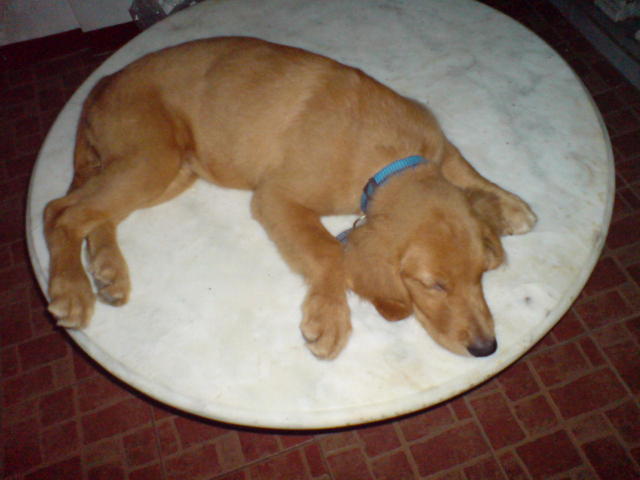 dog licking legs
QuestionI have a blue tice walker that has licked holes
dog licking legs
QuestionI have a blue tice walker that has licked holes
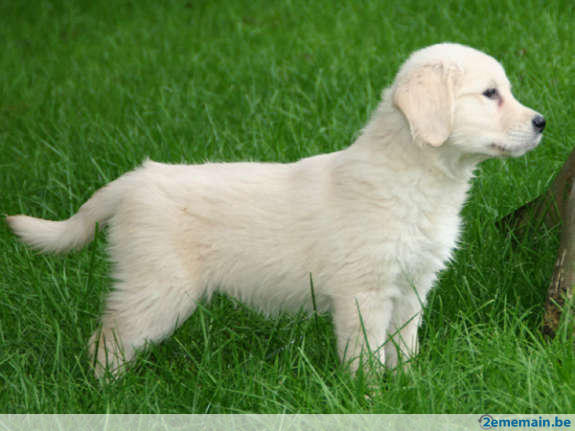 Golden retriever
QuestionGolden retriever puppy
QUESTION: Hello,
Golden retriever
QuestionGolden retriever puppy
QUESTION: Hello,
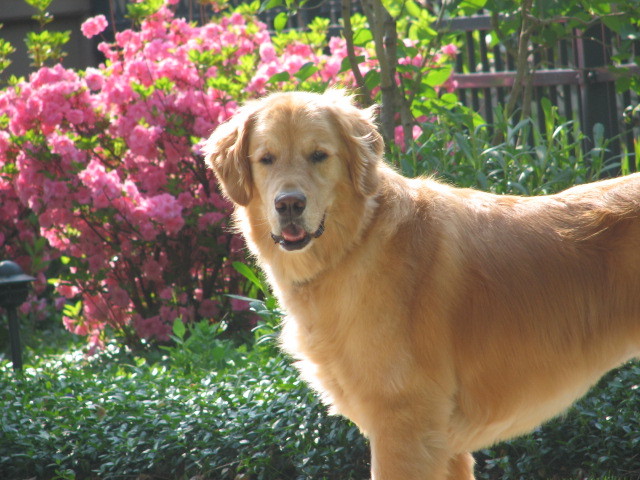 Goldens and cancer
Question
Duke
I just read your response to a women who
Goldens and cancer
Question
Duke
I just read your response to a women who
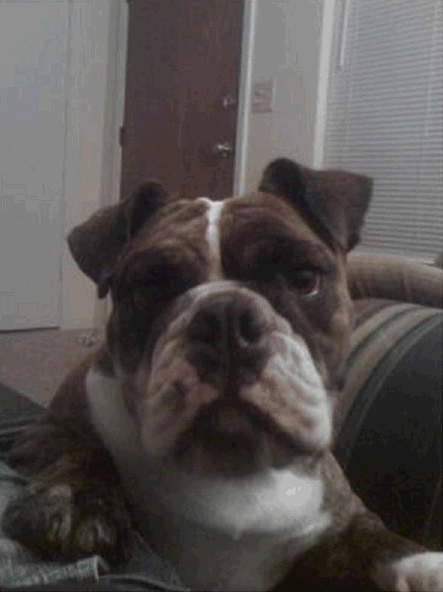 Boxer cardiomyopathy
QuestionI have a two and one half year old boxer who ju
Boxer cardiomyopathy
QuestionI have a two and one half year old boxer who ju
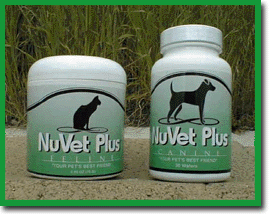 Anxiety? golden retreiver ; valerian time release canine dosage :
QuestionMy Golden is panting, pacing and pawing excessi
Anxiety? golden retreiver ; valerian time release canine dosage :
QuestionMy Golden is panting, pacing and pawing excessi